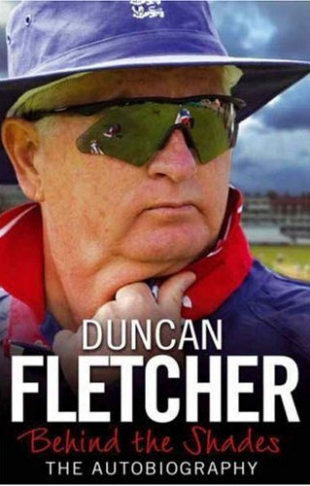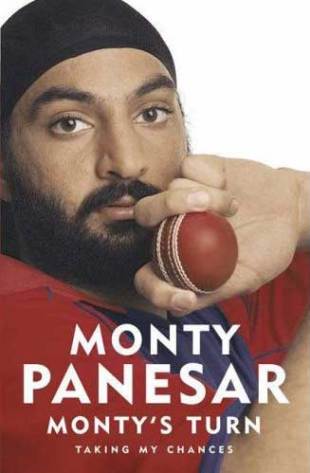Spilling the beans and more banality
It wasn't a vintage year for cricket books, although at least England's drubbing in Australia almost 12 months ago spared us another avalanche of post-Ashes cash-ins. We asked our in-house editors, associates and a selection of the great and the good from the world of cricket writing and reporting for their picks of 2007
|
|
  |
The Best
The most publicity surrounded Behind The Shades, Duncan Fletcher's warts-and-all autobiography published in November and extensively serialised in newspapers in the UK. Opinion was polarised. Some thought that Fletcher had betrayed a special bond between coach and players, others that he had opened a can of worms that needed exposing. It pulled no punches, and even Fletcher himself hinted that he might have gone too far with some of the revelations, not least regarding Andrew Flintoff's drinking. But when the tabloid tidbits have settled, it is a fascinating and insightful story of a remarkable few years.At the other end of the spectrum is Mukul Kesavan's Men In White. Kesavan is an intellectual who happens to love cricket, rather than an out-and-out cricket writer, and that enables him to offer fresh and considered insights into the game in this collection of essays. He is opinionated - for which he makes no apology - and the quality of the writing means that the reader will certainly be left thinking, which is a rarity in most cricket books these days.
Ian Botham has already produced autobiographies but you suspect that Head On, which deals with his first half-century, is the most honest. With Botham, what you see is what you get. He's rarely wrong, and when he is wrong, it is for the right reasons. He might try the patience of a saint at times but he's never dull and neither is this book.
The Worst
The runaway nominee here is Monty Panesar's ghosted autobiography Monty's Turn. It's not really any worse than many of its ilk; it's certainly no better. But books of this kind, where the player's career is barely underway, can never be more than lightweight Christmas cash-ins. Last year we had Pietersen's offering; be warned, Alastair Cook's life story is earmarked for next autumn ... by which time he will be 23.Coming a close second is Ashes Frontline, a tour diary of the 2006-07 series by Justin Langer and Steve Harmison. The concept was good, one key man from each side giving differing views of the same drama, and in fairness, Langer's contributions are insightful and entertaining. Harmison's however, are not. "The impression he gives is: why would he want to waste his time actually reading a book that he has put his name to?" wrote Simon Hattenstone, who interviewed Harmison for The Wisden Cricketer. "What's more, by the end of the series he did not want to talk to his ghostwriter, admitting: 'I had to because that's what I had signed up for'." And when the author can't be bothered, why should anyone else?
Golden Oldies
Leading the field is the excellent Stephen Chalke with The Flame Still Burns, an appreciation of Tom Cartwright, who sadly died on the eve of publication. Chalke has the knack of making subjects that could, in the wrong hands, be dull but worthy come to life. His prose sparkles and as with some of his previous offerings, the joie de vivre of a long-lost era powers through.Another outstanding chronicler, Gideon Haigh, had his hard-to-come-by Cricket War, the story of World Series Cricket, republished late last year. A quite superb account of one of cricket's most controversial but almost undocumented spells, it offers a brilliant insight into some of the game's great characters and the way that one man, Kerry Packer, turned the game on its head.
Off The Wall
There's a genre arisen in recent years about the travails of off-the-wall clubs and personal love affairs with the game. Last year we had Penguins Stopped Play and this year's offering is Fatty Batter by Michael Simpkins. It takes a somewhat different tack, concentrating largely on his infatuation with the game as a keen but utterly talentless schoolboy. The story drifts in the last third, when Simpkins tackles adult cricket, an area already milked by Markus Berkmann, Harry Thompson and Haigh, but what goes before more than makes up for that.The most honest offering of 2007 is Wasted by Paul Smith, the former Warwickshire allrounder whose career was ended when it emerged he was a drug addict. He lost his home, his marriage failed, and he was barred access to his children. But for all that, it's a positive book and one that shows how being a sporting star is not a route to success and fortune.
Kiddie Corner
One of the obstacles cricket faces in its bid for global expansion is that to outsiders it is often unfathomable. Football is easy: here's a ball, kick it into a goal. Cricket has a myriad of laws, traditions, and no end of equipment to befuddle newcomers with. Young Wisden by Tim de Lisle is a long overdue guide aimed at children and young adults with the aim of making the game more accessible. It's better than a dummy's guide, and its layout and content ensure that readers are left with the impression of a vibrant and exciting game. One unforeseen plus of the book has emerged following Cricinfo's acquisition by the US-based ESPN. We've found it a superb gift for Americans who are bewildered by what some of them affectionately call "baseball on valium".
Worthy
Two heavyweight authors, David Frith and Haigh, have combined to painstakingly research the history of the Australian Cricket Board. Inside Story has all the hallmarks of two classy but stylistically different writers, and an often-maligned board deserves credit for allowing its secrets to be exposed when the easy thing would have been to have laid low and kept mum. Haigh and Frith have taken a mass of material and produced a publication that will never appeal to the masses but will reward anyone who takes up the challenge.Martin Williamson is executive editor of Cricinfo

